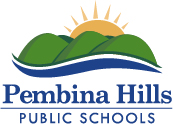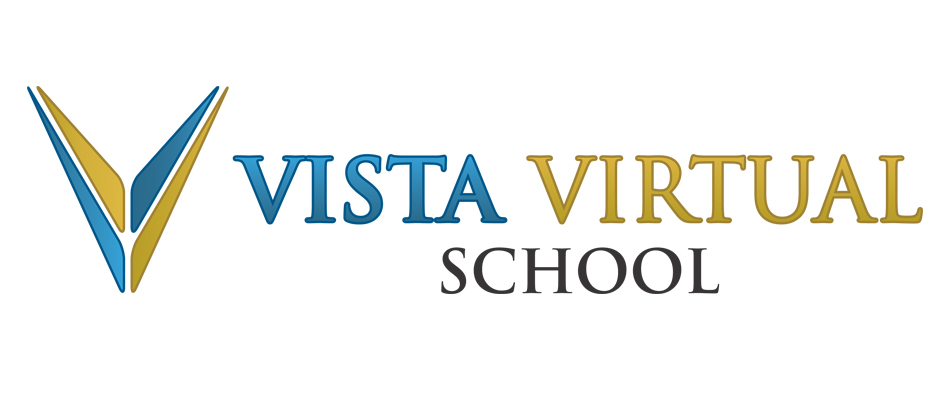January 2021 Newsletter
January 4th, 2021
Click each article below to read this month’s newsletter or read the PDF version.
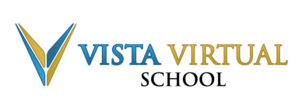
Learning Without Limits
Welcome back! We hope you all had a safe, fun, and rejuvenating holiday season and a happy first few days of 2021. This year in the Chinese zodiac is Year of the Ox, which seems appropriate given the slow, hard work we all face as we march back to some sort of “normal”.
Until the COVID-19 vaccine has done its rounds, 2021 is going to look a lot like 2020. For now, our support staff will continue to work from home and our Calgary office will be open by appointment only, while events such as graduation ceremonies will remain online only. We will continue to update you on everything from Alberta Education announcements to school and division policy changes through our website and social media channels, as well as via this newsletter.
In the meantime, it is nearly the end of the first semester. If you are a high schooler (or a parent or guardian of one), you should be selecting your second semester courses, as well as getting all your end-of-semester assignments squared away. As always, your teachers and academic counsellors are but a phone or Zoom call or an email away; don’t be afraid to ask for help if you need it!
We always welcome your comments and feedback regarding this newsletter, or anything else. If you have any questions or concerns, please phone us toll-free at 1-855-974-5333 or talk with your teacher. If you have any VVS-related stories you’d like to share, here or on our website or social media platforms, please contact Ben Freeland, our communications and marketing specialist.
We hope the new year brings you joy and success!
Sincerely,

First Semester Almost Over!
 First semester for high school students ends on Friday, January 29, 2021, with second semester beginning on Monday, February 1. This means you have until Friday the 15th to submit any first semester assignments. Should you be struggling with any of your work, please ask your teacher for assistance.
First semester for high school students ends on Friday, January 29, 2021, with second semester beginning on Monday, February 1. This means you have until Friday the 15th to submit any first semester assignments. Should you be struggling with any of your work, please ask your teacher for assistance.
This also means it is time to start selecting your second semester courses if you have not already started doing so. Any questions or concerns about this should be directed to your academic counsellor.
VVS Office Closed
All VVS support staff will be working home until further notice. The Calgary campus will remain open for exams and other business, but strictly by appointment. Those wishing to visit are requested to book an appointment in advance and to wear a mask.
Our phone line (1-855-974-5333 x5317) is being monitored but not answered in person. All voicemails are being redirected to the VV Support email inbox and are being responded to in the order in which they are received. Our support staff may respond to messages either by phone or email. All other phone numbers and extensions will remain the same unless otherwise noted.
Diploma Exams
Alberta Education will be holding its next round of Provincial Diploma Exams between January 11 and 28. Because of COVID-19, these exams, as well the remainder of this school year’s diploma exams, will be optional. Students still wishing to write Diploma Exams are encouraged to talk to their teachers.
For more information on Diploma Exam exemptions, please read this web update.
Schulich Leader Scholarship Nominations
 The Schulich Leader Scholarship is one of Canada’s most prestigious undergraduate scholarships. Open to one graduating high school student per school who plans to enrol in a post-secondary STEM (science, technology, engineering, and mathematics) program, the scholarships range in value from $80,000 for science and math to $100,000 for engineering.
The Schulich Leader Scholarship is one of Canada’s most prestigious undergraduate scholarships. Open to one graduating high school student per school who plans to enrol in a post-secondary STEM (science, technology, engineering, and mathematics) program, the scholarships range in value from $80,000 for science and math to $100,000 for engineering.
To be considered for a Schulich scholarship, students must be nominated by a teacher or academic counsellor. The deadline for nominations is Wednesday, January 27, 2021. Read this school news story for more information on the nomination and application process.
Prime Minister’s Award for Teaching Excellence – January 12 Deadline
Is there a teacher in your life (or your child’s) who has truly risen above and beyond—one who has truly stood out as a guide and mentor? If so, you should nominate them for the 2021 Prime Minister’s Awards for Teaching Excellence before the deadline of Tuesday, January 12.
Read more here about the nomination process.
RE/MAX Quest for Excellence 2021 Bursary Program Accepting Applications
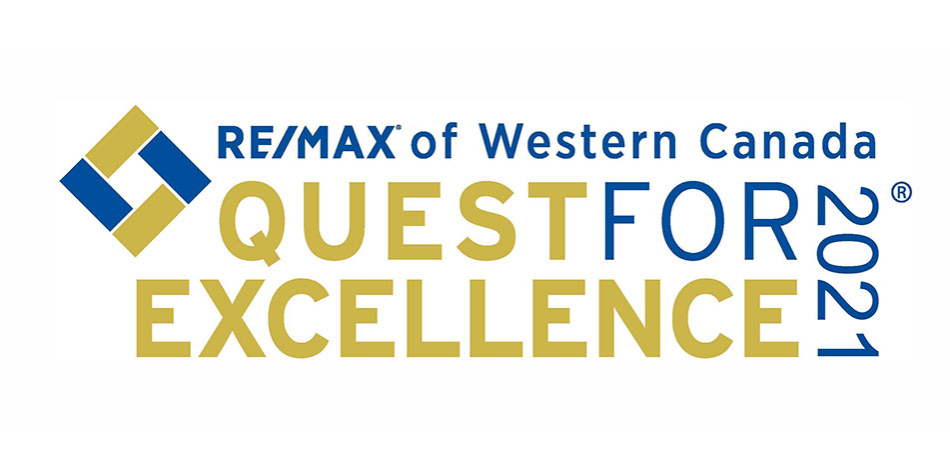 RE/MAX of Western Canada is once again offering $1,000 bursaries to 16 grade 12 students across western Canada through its Quest for Excellence bursary program.
RE/MAX of Western Canada is once again offering $1,000 bursaries to 16 grade 12 students across western Canada through its Quest for Excellence bursary program.
The contest is open to all grade 12 students in western Canada attending high school between September 2020 and June 2021, and who have not yet participated in graduation commencement ceremonies.
The program is welcoming submissions until Monday, March 15, 2021. Winners will be notified in April 2021, with a formal presentation at the students’ commencement ceremonies. Read more here about how to apply.
Triple P – Positive Parenting Program
The Triple P – Positive Parenting Program® is an online platform that gives parents a wide range of positive parenting tips and strategies, which is currently available for free for Alberta parents thanks to provincial funding. Triple P offers courses for parents and caregivers of children aged zero to 12 as well as teen-focused courses—offered in both one-off and continuous formats.
Read more about it here.
Skills Investment Bursary (SIB) for Adult Students
The Skills Investment Bursary is a fund provided by Alberta Works for adults (aged 20 and up) enrolled in high school upgrading courses. Adult students interested in funding for an April 2021 start have until January 22 to submit their application, but we will continue to accept applications until funding runs out. Alberta Works usually takes about 10-12 weeks to review applications.
More information is available on our website.
Accessing the Student Information System (SIS)
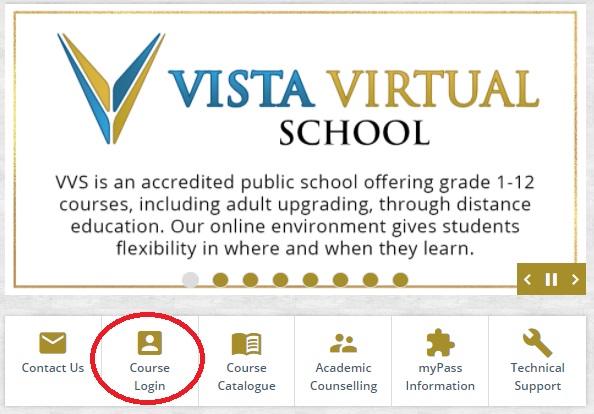 Parents and guardians who have not yet logged into the VVS Student Information System (SIS) should do so as soon as possible, as this is the best way to monitor your child’s progress, review correspondence, keep track of course timelines, and stay up to date with your child’s activities and submissions. You should have received an email providing you with login information for your account.
Parents and guardians who have not yet logged into the VVS Student Information System (SIS) should do so as soon as possible, as this is the best way to monitor your child’s progress, review correspondence, keep track of course timelines, and stay up to date with your child’s activities and submissions. You should have received an email providing you with login information for your account.
To get started, visit the school website and select the Course Login quick link button (below the rotational spotlight window) to be directed to the SIS login page. If you have forgotten your username and/or password, you can retrieve them by submitting your email address. You can also contact us at vvsupport@pembinahills.ca or by phone at 1-855-974-5333 x5317 if you have any trouble.
Adult Learning at Vista Virtual School
We are still welcoming adult students—defined as those aged 20 and up as of September 1, 2020. For more information on our adult upgrading program, please visit our website or email us at vvsadults@pembinahills.ca.
Student ID Cards Available
Are you or your child interested in having a Vista Virtual School ID card? Email us at vvsupport@pembinahills.ca with your (child’s) name and Alberta Student Number together with an appropriate headshot, and we will get this sent off to you.
School Council and Parent Input
Although we do not have a formal School Council, we welcome parents, guardians, and students to provide input on the operations of the school. Your suggestions can be directed to Mike Loitz, Principal.
Monthly Events Calendar
Check out our monthly events on our website. We update this calendar as events are added.
Important Dates in January
Staying Active in a Pandemic Winter
 It’s time again for new year’s resolutions, which, for many of us, typically include fitness goals. Under normal circumstances, new year’s fitness goals generally mean getting a new gym membership (or pledging to make better use of the one you already have) or signing up for a fitness class, a martial arts class, or some other group activity.
It’s time again for new year’s resolutions, which, for many of us, typically include fitness goals. Under normal circumstances, new year’s fitness goals generally mean getting a new gym membership (or pledging to make better use of the one you already have) or signing up for a fitness class, a martial arts class, or some other group activity.
But what is one to do when gyms and group classes are out of the question due to a global pandemic? Suffice it to say, COVID-19 has made it more challenging than ever to stay motivated to exercise, especially when you live in a cold climate like ours!
Challenging, but far from impossible, and in fact more important than ever, as being active this time of year is a surefire way to boost mental health and overall wellness. It’s also a great way to bring family members together and cultivate some family team spirit as you all crush your individual fitness goals.
So, what can you do this time of year in the current reality? Here are a few ideas that might help.
- Build a home gym. A home gym area need not be complicated or expensive. At minimum, all you need is a dedicated corner of your house and some yoga mats, which will allow you to build a fitness routine centred on body weight exercises (squats, lunges, sit-ups, push-ups, jumping jacks, shadowboxing etc.), stretching, yoga, pilates, and so on. You can then slowly build from this with some dumbbells, kettlebells, TRX bands, and perhaps a chin-up bar in a doorway.
- Explore online fitness tutorials. Who needs to pay for a fitness class when there’s YouTube at your fingertips? With a bit of focus and organization, you can quickly amass enough fitness-related YouTube content to keep you active all winter long, from body weight exercise routines to full yoga classes.
- Get out and run. Winter running in a climate like ours may feel intimidating at first, but provided you layer up for the weather, it’s completely safe (as long as you’re careful on icy pavement) and can even become enjoyable. You’ll want to invest in a decent pair of trail-running shoes, which have better treads for ice than regular track shoes, and some layering active wear. Also be sure to wear reflectors, as it gets dark early this time of year and you want to be seen.
- Set realistic but challenging goals for yourself. Fitness apps and digital habit trackers are so numerous these days that the challenge is picking which one works best, although some people still prefer pen and paper. Regardless what you choose, it’s important to track your progress and set new goals. It’s also deeply satisfying to be able to look back at your progress and see how far you’ve come.
- Team up with friends and family. We all know it’s hard to stay motivated to exercise on your own, so why not involve other people in your fitness goals? This could involve making and printing out a progress chart where you and other family members map your fitness progress or finding a virtual exercise buddy. You can work out with a friend over Zoom.
- Tailor your social media for health and fitness. Want to stay inspired to be fit beyond the first few weeks of January, when people tend to start backsliding on their resolutions? A great way to improve your odds is to make a conscious effort to follow inspiring fitness influencers on Instagram or whatever social media platform you frequent. Not only is social media a great source of fitness inspiration, but it’s also a great resource for workout routines and health tips.
If any of you readers have any pandemic winter fitness tips that we haven’t mentioned here, we would love to hear about them.
Never Forget: Helping Children Navigate History’s Worst Tragedies
 Wednesday, January 27 marks the 76th anniversary of the liberation of the Nazi death camp of Auschwitz-Birkenau by Soviet troops, an anniversary which, since 2005, has been marked by the United Nations as International Day of Commemoration in Memory of the Victims of the Holocaust, or “Holocaust Remembrance Day” for short.
Wednesday, January 27 marks the 76th anniversary of the liberation of the Nazi death camp of Auschwitz-Birkenau by Soviet troops, an anniversary which, since 2005, has been marked by the United Nations as International Day of Commemoration in Memory of the Victims of the Holocaust, or “Holocaust Remembrance Day” for short.
As with the commemoration of the November 11 armistice (which brought World War I to an end in 1918), Holocaust Remembrance Day is intended as a day of commemoration—in this case of the 6 million-plus victims (primarily Jews) who were systematically exterminated by the Nazi German regime and its allies—as well as a collective reaffirmation to counter antisemitism and other forms of intolerance that might lead to future atrocities of this kind.
Holocaust Remembrance Day presents challenges for parents and teachers that the anniversary of the “Great War” does not. Whereas Remembrance Day can be explained to young children in general terms while avoiding graphic descriptions of the horrors of trench warfare and poison gas attacks, no explanation of why we commemorate January 27 would be remotely adequate without explicit mention of gas chambers, crematoriums, and slave labour.
The question of the age-appropriateness of “sad” episodes of history for young children was recently front and centre in Alberta when proposed new school curriculum surfaced was leaked to the media, in which recommended that Canada’s residential school history not be taught to elementary students because, well, it’s depressing. The proposal was widely condemned by parents, teachers, and researchers, with the provincial government distancing itself from the proposed curriculum.
The consensus appears to be that the residential school system is an appropriate topic for elementary school students. That said, Canada’s residential school legacy is, as a historical tragedy, more comparable to World War I than to the Holocaust in that one can talk about it in general terms, as a historical injustice in which children were taken from their families and robbed of their culture, without wading into the grim details of sexual abuse, malnutrition, medical experimentation, and so on.
So, when is it appropriate to start teaching children about the Holocaust and other historical episodes of mass murder (such as the Armenian, Cambodian, and Rwandan Genocides) that cannot be explained without the disturbing details?
In Israel, Holocaust education is government-mandated and begins at the Kindergarten level, albeit with some age-appropriate packaging aimed at assuaging children’s anxieties. In Germany, education on the Holocaust (and the Nazi era more generally) is compulsory for secondary school (age 10 and up), while field trips to concentration camps and Holocaust museums are a standard feature of modern German secondary education.
According to a fascinating article in Parents.com on this subject, conversations on “difficult topics” like the Holocaust need to begin at home. While educational experts cited in this article suggest grade 7 as roughly the right time to introduce formal Holocaust education into the curriculum, the author (himself a third-generation descendent of Holocaust survivors) urges parents to take the lead on educating children on history’s darkest chapters, and to be ready to answer difficult questions.
A recent US survey of young adults aged 18 to 39 shows that education about the Holocaust is desperately needed. Of the surveyed Millennials and Gen Z’ers, one in eight had never even heard of the Holocaust, while nearly a quarter (23 percent) thought it was either a myth or had been exaggerated. Moreover, a full half (49 percent) of those surveyed had encountered denialist media, further highlighting the need for education in the face of rampant disinformation.
Holocaust Remembrance Day is, in sum, about more than just the murder of 6 million Jews and others. It is about the importance of historical memory and of acknowledging history’s worst tragedies so that they are not destined to be repeated. While the age-appropriateness of detailed discussions of atrocities is a matter of debate, there is no inappropriate age for teaching children that people have done terrible things throughout history and that we all have a role to play in building a better world.
For those looking for educational resources on the subject, the World Jewish Congress has excellent content, including survivor testimonial videos.
Contacts


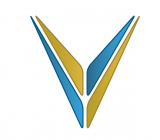
 First semester for high school students ends on Friday, January 29, 2021, with second semester beginning on Monday, February 1. This means you have until Friday the 15th to submit any first semester assignments. Should you be struggling with any of your work, please ask your teacher for assistance.
First semester for high school students ends on Friday, January 29, 2021, with second semester beginning on Monday, February 1. This means you have until Friday the 15th to submit any first semester assignments. Should you be struggling with any of your work, please ask your teacher for assistance. The
The  RE/MAX of Western Canada is once again offering $1,000 bursaries to 16 grade 12 students across western Canada through its Quest for Excellence bursary program.
RE/MAX of Western Canada is once again offering $1,000 bursaries to 16 grade 12 students across western Canada through its Quest for Excellence bursary program. Parents and guardians who have not yet logged into the VVS Student Information System (SIS) should do so as soon as possible, as this is the best way to monitor your child’s progress, review correspondence, keep track of course timelines, and stay up to date with your child’s activities and submissions. You should have received an email providing you with login information for your account.
Parents and guardians who have not yet logged into the VVS Student Information System (SIS) should do so as soon as possible, as this is the best way to monitor your child’s progress, review correspondence, keep track of course timelines, and stay up to date with your child’s activities and submissions. You should have received an email providing you with login information for your account. It’s time again for new year’s resolutions, which, for many of us, typically include fitness goals. Under normal circumstances, new year’s fitness goals generally mean getting a new gym membership (or pledging to make better use of the one you already have) or signing up for a fitness class, a martial arts class, or some other group activity.
It’s time again for new year’s resolutions, which, for many of us, typically include fitness goals. Under normal circumstances, new year’s fitness goals generally mean getting a new gym membership (or pledging to make better use of the one you already have) or signing up for a fitness class, a martial arts class, or some other group activity. Wednesday, January 27 marks the 76th anniversary of the liberation of the Nazi death camp of Auschwitz-Birkenau by Soviet troops, an anniversary which, since 2005, has been marked by the United Nations as
Wednesday, January 27 marks the 76th anniversary of the liberation of the Nazi death camp of Auschwitz-Birkenau by Soviet troops, an anniversary which, since 2005, has been marked by the United Nations as 